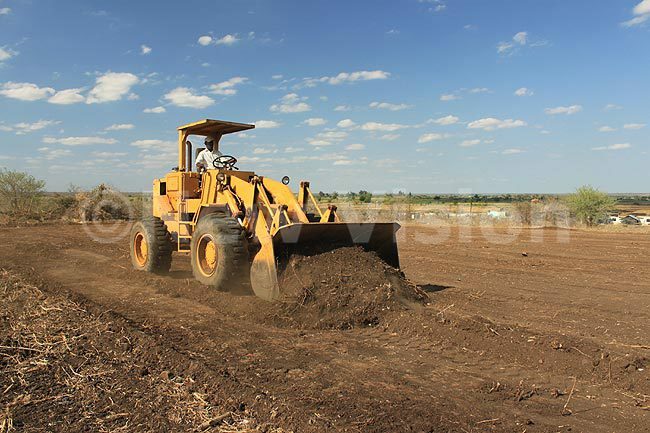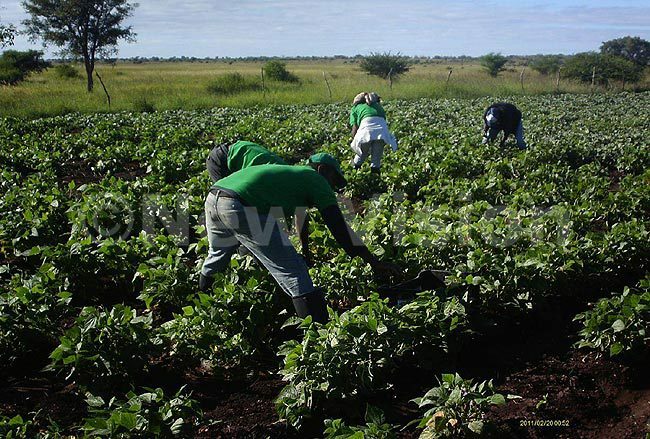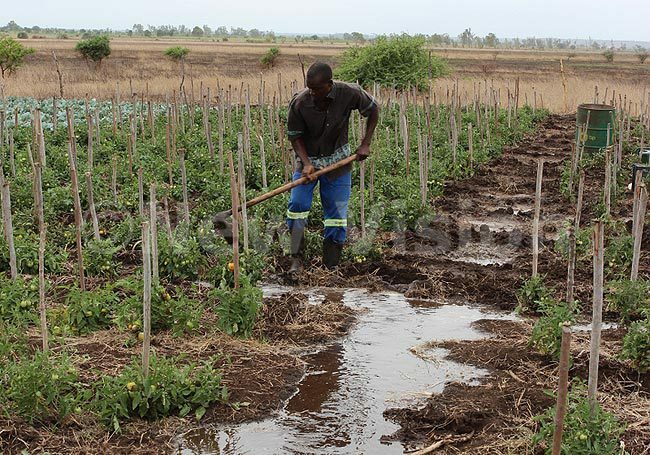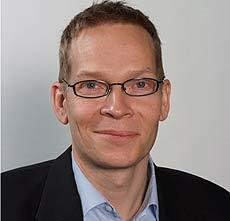Danish agribusiness concept to revive farming in Uganda
There is something intriguing about Denmark. A country with so many world records, one of its outstanding ones include ranking first in government transparency and lack of corruption. There are more, like having the world’s happiest population, the world’s highest minimum wage, lots more.
By Nigel M. Nassar
There is something intriguing about Denmark. A country with so many world records, one of its outstanding ones include ranking first in government transparency and lack of corruption. There are more, like having the world’s happiest population, the world’s highest minimum wage, lots more.
But there is one record that should tickle your interest as a reader of a farming publication. And that is the fact that Denmark has the highest per capita food production in the world.
Yet, they do that with just about 5% of their population, which is 5.5 million people. Uganda, with all her 34.5million people and about 80 percent of these involved in agriculture, can’t seem to produce enough food to feed all the Ugandans. Clearly, there is something Denmark is doing right, despite the odds. And we can surely borrow a leaf.

Preparing the site: The In-Grower project uses money from social investors, individuals, philanthropists and governments to procure land, fertilisers and irrigation systems, among others.
So, when farming experts from Denmark come to Uganda to share their knowhow and ultimately revive the country’s yields and their profitability, there is every reason to pay attention.
As you read this, those experts are in the country as part of a delegation of about 20 entrepreneurs from Denmark here to seek business opportunities with serious Ugandan entrepreneurs, organised by the Danish Embassy in Uganda.
Among the 20 is a team from danishknowhow, a Denmark-based agribusiness developer with an already successful project in Mozambique since 2010. They have picked on Uganda as their next African country for a revolutionary project that fits the goings and comings of Ugandan rural communities.
“So why Uganda?” – We asked Anders Frigaard, the managing director of danishknowhow, who was hosted on Vision Group’s Urban TV recently to breakdown his company’s plan for millions of Ugandans who have finally realised that ‘enlightened’ farming is the country’s future.
In his response, Frigaard took us down the memory lane of danishknowhow’s nine year experience developing, establishing and operating successful agribusiness projects around the world.
“See, Uganda isn’t our first. Since 2005 we have been offering practical skills in agriculture and food production to commercial farmers and governments in developing countries,” he said.

Harvesting green beans: The entrepreneurs can choose to hire hands, or help one another to harvest and sell together.
“For instance in Nepal, South Asia, we run a successful dairy support scheme involving 237 small farmers. In Bolivia, South America, we run a similar project. What we are running in Mozambique is different – an In-Grower kind called Incubator Moamba, dealing in chicken and vegetables on a former colonial farm with 300 hectares. We intend to run a similar one in Uganda, as the feasibility studies have shown it’s the model guaranteed to step up Ugandans’ yields, both in quality and quantity.”
Uganda, like many developing countries, has limited agricultural production yet there is plenty of fertile land, a ready work force and an attractive market for food products.
With the In-Grower model, says Frigaard, this state of affairs is bound to change. Because it is, in essence, a sustainable and profitable agri-business venture seeking to make its players successful entrepreneurs.
Titus Kasujja, the danishknowhow regional manager for Uganda, Rwanda and South Sudan, says they intend to do this by transferring Danish farming technics and business skills to Uganda, and tailoring them towards Ugandans’ needs to achieve higher per capita food production and increased agricultural earnings locally.
How the In-Grower model will work
For starters, danishknowhow, according to Frigaard, does not bring in the money. Rather, they partner with investors, governments and donors wishing to create agricultural production based on entrepreneurship, job creation and sustainability.
“For instance, the agricultural ministry, or a politician wishing to give back to the people, even a donor, can decide to inject in money as a service to the nation. Our role is to use that money to develop the agribusiness concept in a given locality, establish it and operate it with selected locals who have the ability to run an agribusiness venture as their own business,” clarifies Frigaard.
So, equipped with their know-how and waiting to dispense it, danishknowhow are looking for those social investors, banks, NGOs, politicians and philanthropists to come on board for the In-Grower venture to roll out, and possibly set Uganda on a road to recovery from poor yields and profitability.

Under the model, land is parceled amongst different farmers who run independent agribusinesses each, with centralized support from the In-Grower project runners.
According to Frigaard, they use that money to procure land, machinery, fertilisers and any other infrastructure needed for the In-Grower venture to take off. Afterwards, they partition the land and assign each plot to an able farmer (entrepreneur), who will have passed the selection process to run one of the many ventures on the huge chunk of land.
“Each plot runs as a private-owned business venture, run by an entrepreneur who strives to maximize yields, with centralized help from the In-Grower project, which will be providing technical knowledge and make available to all entrepreneurs the equipment needed and other communal services like irrigation system, feeds, fertilisers, tools, seedlings, etc,” says Frigaard, adding that creating a commercial mindset is focal here.
Also, to beat the problem of inaccessible markets, the project will help market the farmers’ produce and provide transport communally to the selling points. After selling, 50% of the profit goes to their own coffers, while 50% goes back to the project for its operational costs and continuity.
Regional Manager Kasujja says from their experience with Incubator Moamba in Mozambique, which engages 30 successful in-growers, Ugandan youths are bound to embrace the In-Grower project more, since they have learnt that farming is the way forward, and are trying out all sorts of ventures on their own.
“Plus, Uganda is strong on chicken and vegetables, so we can’t go wrong. While increasing food production in rural areas, we shall be creating jobs,” says Kasujja, who also runs his own businesses in Denmark and in Uganda, including a study-abroad marketing company, a Danish-Uganda agricultural networking forum, and a 10-acre demonstration farm with piggery, fish ponds, macadamia trees and vegetables, at a place called Ocuma in Bukedea district, eastern Uganda.
“We have designed this In-Grower project mostly for rural Uganda so that the youth can stop leaving their villages to come to the city and ride boda-bodas instead of benefitting heavily from their land back home,” adds Kasujja.
Estranho Vilanculos, a youth entrepreneur with Incubator Moamba in Mozambique, says: “…this project gives me the possibility to work on my own business, with strong support from Incubator Moamba. I get a lot of tools and knowledge from the project, which I use to build my own business. It is a great opportunity for young people like me. It gives us the faith and motivation we need for developing our country.”
Vilanculos’s is one of the many success stories shared by farmers on Incubator Moamba’s Facebook page, with pictures depicting a worthwhile journey. By the look of things, the same project, if rolled out in Uganda, might actually give farming here a new meaning. But it will all start with government and other forms of philanthropy coming on board. That might take up to $1m, or more.
Who is Anders Frigaard? Frigaard, the brain behind danishknowhow, is Danish with several years of agricultural expertise. He holds a bachelor’s degree in agricultural economy and an MBA in International management.
Frigaard, the brain behind danishknowhow, is Danish with several years of agricultural expertise. He holds a bachelor’s degree in agricultural economy and an MBA in International management.
A sales and marketing manager in a number of agro-companies in Denmark, Frigaard is also an international advisor in the Danish Agricultural Council. He founded danishknowhow in 2005 to handle consultancy in agriculture.
His company develops, establishes and operates agricultural projects in developing countries.
Reach danishknowhow via their website www.danishknowhow.com to check out their projects, as well as tender in your pledge to turn Ugandans’ farming fortunes around.